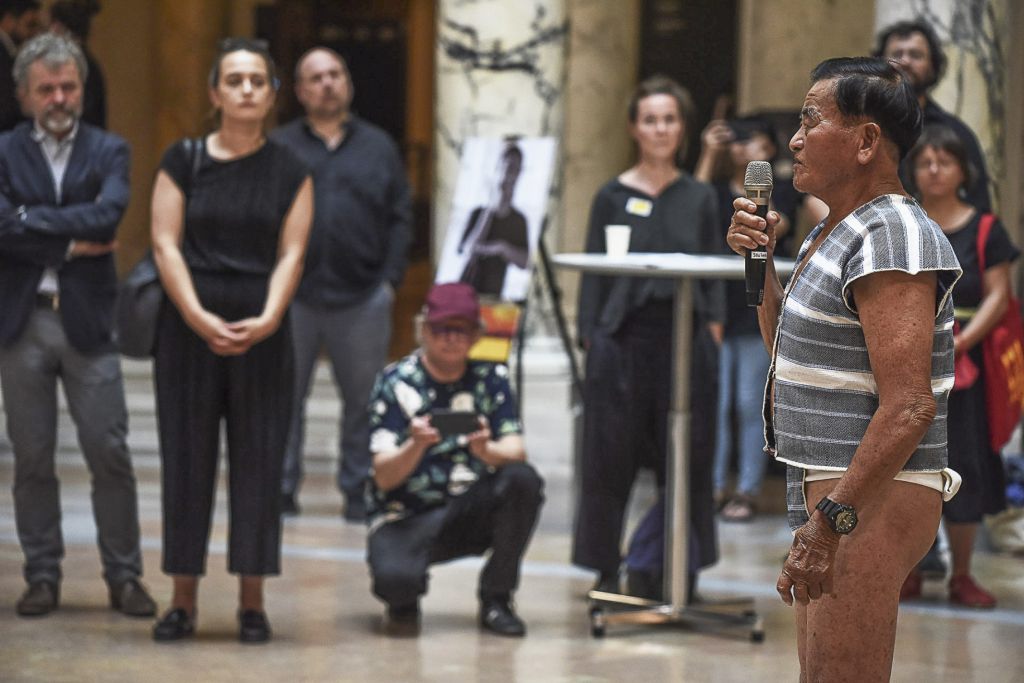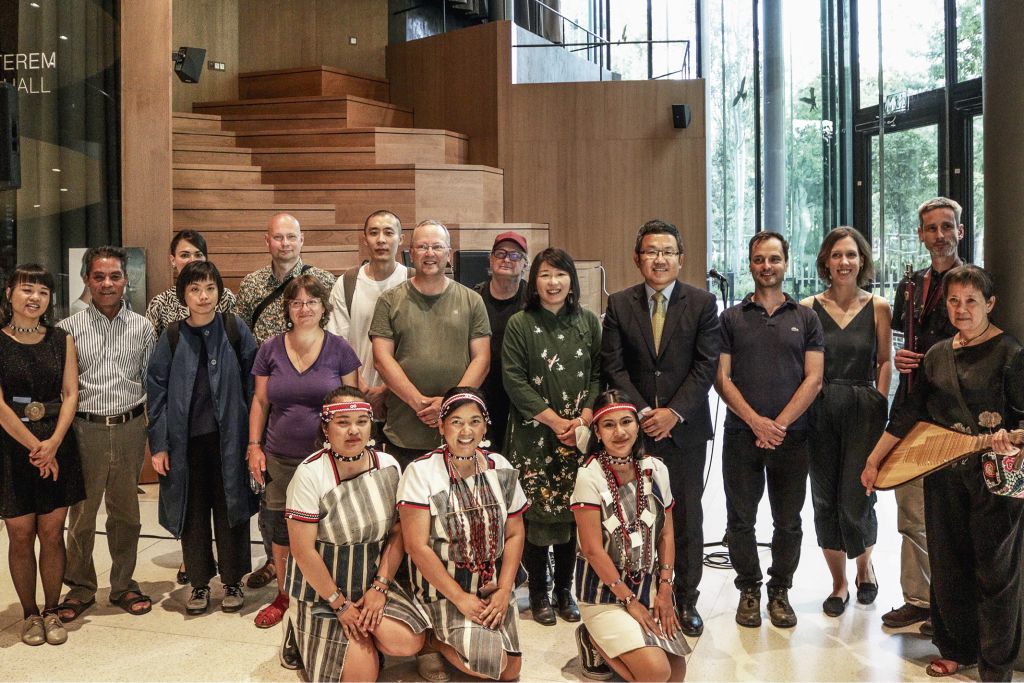The outcomes of the artistic research project Creative (Mis-)Understandings: Methodologies of Inspiration, led by Johannes Kretz and Wei-Ya Lin and sponsored by the Austrian Science Fund (PEEK-FWF), were presented to a broader public at the Weltmuseum Wien on 20 May and at the Magyar Zene Háza (House of Hungarian Music) on 23 May.

This four-year project was based on collaboration between singers and poets from a Taiwanese indigenous community known as the Tao and Austrian/European composers and sound artists. It aimed to develop strategies that would contribute to the long-term revitalisation of the Tao’s cultural practices while also redefining the role played in society by academically trained European composers and sound artists.
During Austria’s Long Night of Research, an extended happening staged both inside and in front of the Viennese ethnographic musuem Weltmuesum Wien featured traditional Tao singing (Voices of Lanyu – singers from the Tao community: Hsin-Tian Yan, Siaman Vongayan, Si Fagelan, En-Chi Hsieh, Si Mamalit, Si Pehbowen, Hsiao-Ching Shih, and Si Talomo) plus a rock band (Wild Thing) comprised of young indigenous Taiwanese musicians as well as compositions, improvisations, and sound installations by further team members (Samu Gryllus, Wolfgang Liebhart, Sandeep Bhagwati, Ensemble Extrakte, Chien-Hsiang Lin, Wei-Ya Lin, Si Pehbowen [Zheng Kuo], Fu Tian, Siaman Vongayan [Chien-Ping Kuo], Ming Wang, Hui Ye, and Johannes Kretz) who rendered their transformations of Tao songs in various contemporary contexts complemented by sound and video installations. There was also plenty of time for encounters and dialogue with the audience, thanks to which this event additionally served as a platform of sharing and substantive engagement.
One of the central concepts here was the idea of “scalable composition”, which was brought into play by Sandeep Bhagwati. In “scalable composition”, it is assumed that a musical idea, a song, or any other sort of composition can be realised in various instantiations or versions—which should be conceived so as to be appropriate to the respective geographic and/or sociocultural contexts of their performance. In keeping with this idea, versions were developed with orientations ranging from the more traditional to the popular and on to the more experimental or avant-garde that, at their core, revolved around the same artistic content. Feedback loops and interviews were inserted between the various creative phases in the interest of evaluating just which aesthetic and/or context-related musical or non-musical characteristics play a decisive role, here.
Over 700 visitors experienced musical and multimedia examples of cultural dialogue as well as tradition’s transformation. Out in front of the Weltmuseum on Heldenplatz, the Tao rock band Wild Thing gave an open-air performance featuring new interpretations of traditional Tao songs, while the museum’s columned hall featured offerings ranging from traditional dances and singing to contemporary takes on Tao heritage and traditions as well as the social and political challenges that the Tao face in a globalised world.

Three days later, Budapest’s House of Music hosted the same programme in a version that was adapted to the special conditions and possibilities inherent in this new building and entitled The Heritage of the Orchid Island – A Millennial Culture in Contemporary Light. This event, as well, met with keen public interest and was very well received. The trans-genre thematic engagement that characterised this project, involving the knowledge of this indigenous group’s members and the Europe-based artists, proved itself eminently suited to demonstrating the kinds of contributions that artistic research can make to building bridges of understanding between cultures—as well as to the project of dealing creatively, humorously, and inspiringly with any misunderstandings that do arise. And in this spirit, one can view Creative (Mis-)Understandings as being of great socio-political relevance indeed.

